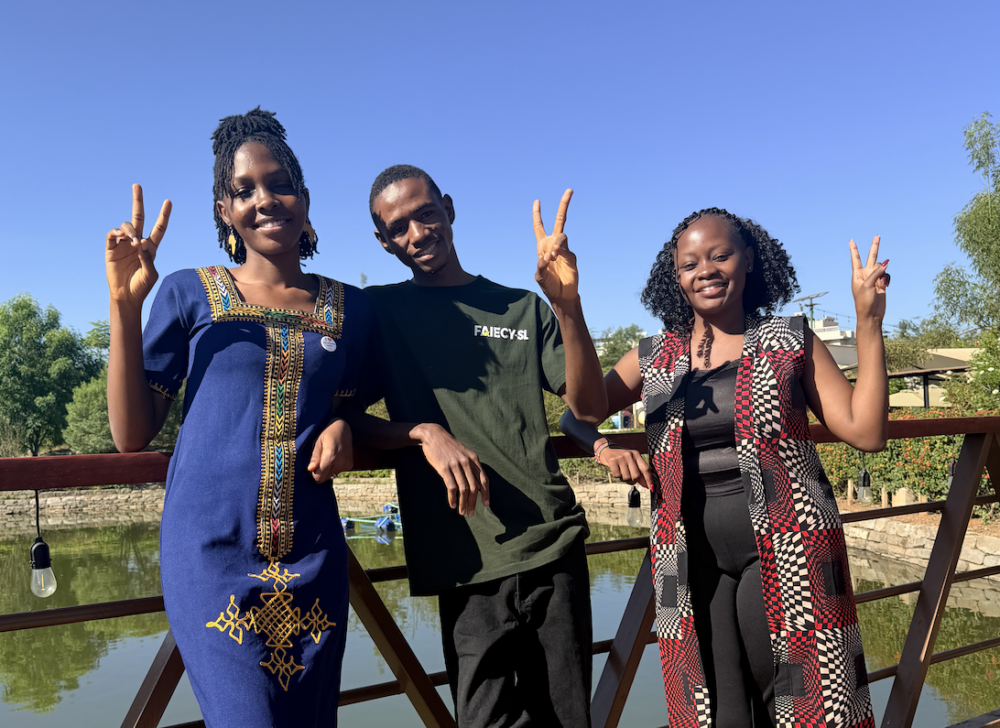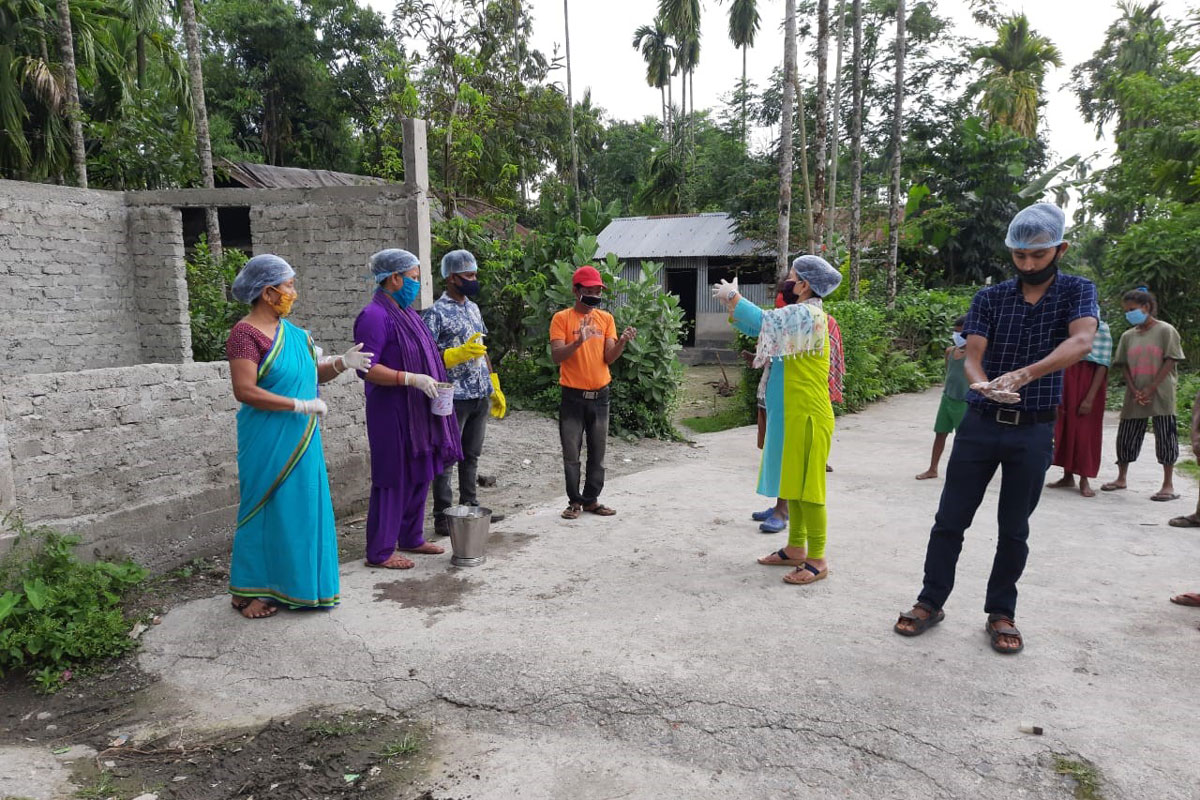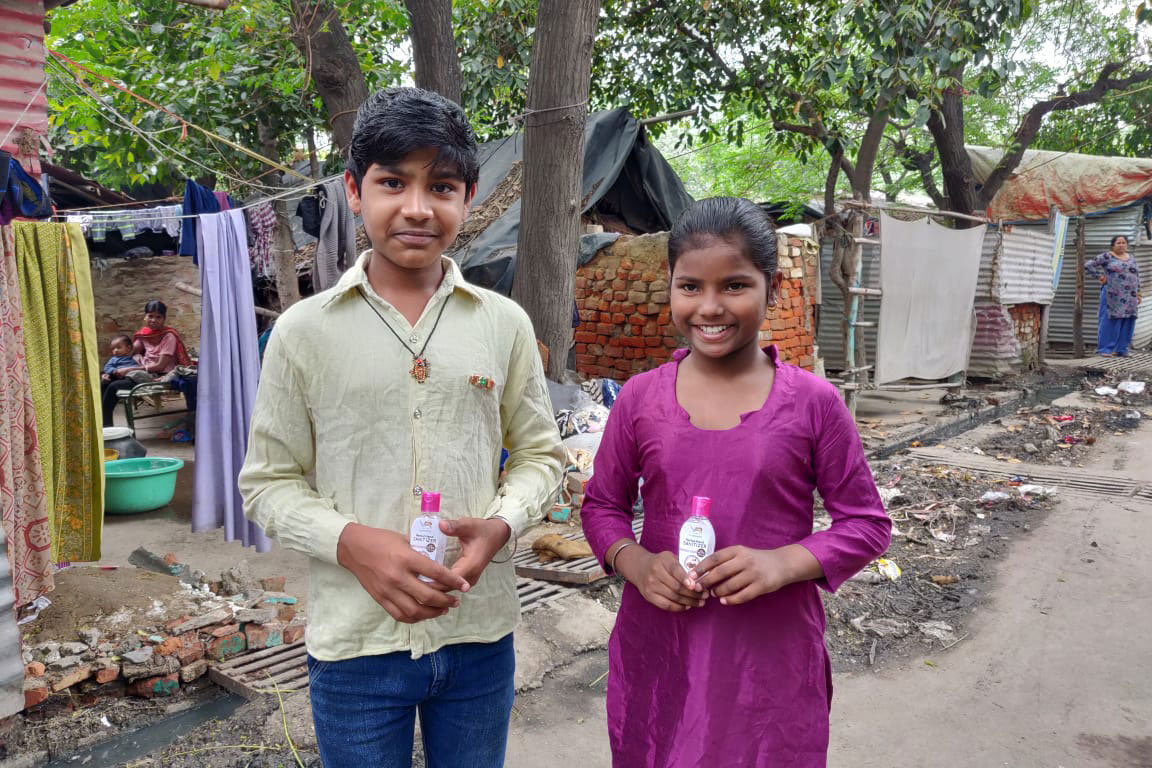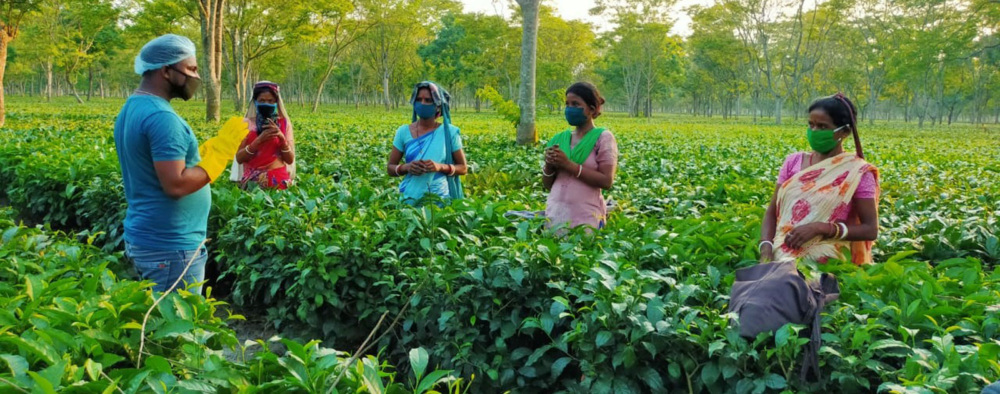
Poder da juventude
Segurança e bem-estar, Poder da juventude
O sul da Ásia foi duramente atingido por uma segunda onda de infecções por COVID-19. Na Índia, os especialistas acreditam que as infecções são subnotificadas, mesmo com o país registrando quase 350.000 novos casos todos os dias. A crise é agravada pela limitação de leitos hospitalares e fornecimento de oxigênio, e houve relatórios recentes de indivíduos vacinados sendo infectados, aumentando os temores sobre a disseminação da variante no país.
Nos vizinhos Paquistão e Bangladesh, os confinamentos e restrições a viajar foram reimpostas à medida que o número de infecções atingiu novos recordes. As vacinas demoram a chegar aos necessitados, enquanto a falta de informação criou uma barreira adicional para inoculações generalizadas.
Em toda a região, agências estaduais e de assistência social estão lutando para dar suporte a crianças e jovens que perderam um ou ambos os pais, se tornaram cuidadores de seus pais ou irmãos mais novos ou estão fora da escola e sem acesso a espaços seguros, alimentos e suprimentos básicos de higiene.
[image_caption caption=”Equipe da Rural Aid conduzindo uma campanha de conscientização em Alipurduar, Índia. © Rural Aid” float=””]

[/imagem_legenda]
Parceiros da GFC no sul da Ásia estão em uma posição única para dar suporte às suas comunidades. Eles estão fornecendo suporte emergencial direto aos jovens e suas comunidades, incluindo alimentos, suprimentos de higiene e medicamentos. Eles também continuam a encontrar maneiras de mitigar as consequências de longo prazo da pandemia por meio de seus programas existentes para crianças e jovens, promovendo meios de subsistência, equidade de gênero, educação e segurança.
Doe para apoiar crianças e comunidades no sul da Ásia afetadas pela COVID-19.
Parceiros como Organização Local de Educação e Desenvolvimento Econômico (LEEDO) no Bangladesh estão a fornecer alimentos a crianças e famílias cujos meios de subsistência são afectados por novos confinamentos, enquanto Sanjog no Paquistão continua a fornecer apoio nutricional e de higiene a crianças detidas em prisões que são, na sua maioria, invisíveis para a comunidade. Em Alipurduar, Índia, Ajuda Rural está trabalhando duro para aumentar a conscientização sobre a segurança das vacinas e as melhores práticas de higiene em comunidades rurais.
[image_caption caption=”Crianças que vivem em comunidades de favelas em Nova Déli, Índia, recebem desinfetante para as mãos da parceira da GFC, Sahyog Care for You, durante a primeira onda da pandemia do coronavírus. © Sahyog Care for You” float=””]

[/imagem_legenda]
Nossos parceiros também estão planejando abordar as lacunas deixadas pelos esforços de resposta e recuperação realizados por seus governos. Em Bangladesh, o parceiro da GFC Fundação Alor Pothe Nobojatray (APON) planeja distribuir cilindros móveis de oxigênio em comunidades vulneráveis. Fundação Shobujer Ovijan – também em Bangladesh – espera fornecer apoio financeiro a mulheres e crianças que vivem abaixo da linha da pobreza, particularmente trabalhadoras domésticas e mulheres na indústria de confecções prontas, cujos meios de subsistência foram afetados pelos lockdowns. Na Índia, a Rural Aid adquiriu equipamentos de proteção individual e trajes e – em parceria com autoridades do departamento de saúde local e a polícia – realizará campanhas de conscientização em comunidades onde a maioria das pessoas tem pouco ou nenhum acesso a informações sobre o vírus. Essa falta de informação tornou essas comunidades especialmente vulneráveis, e os casos estão aumentando vertiginosamente em favelas urbanas e rurais.
Foto do cabeçalho: Equipe da Rural Aid conduzindo uma campanha de conscientização em Alipurduar, Índia. © Rural Aid
